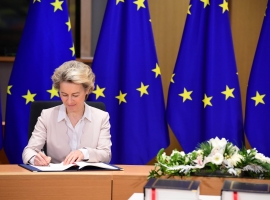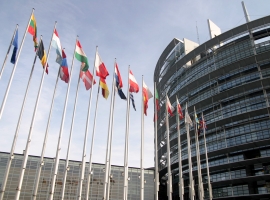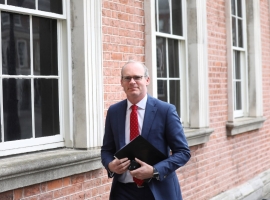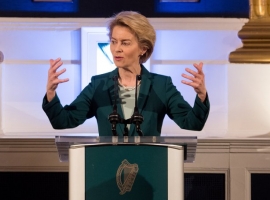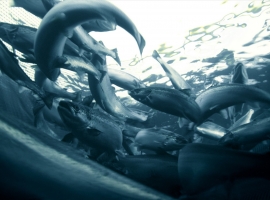
Euro zone inflation slowed to a 14-month low in February, underlining the European Central Bank's caution in removing stimulus despite growth exceeding expectations and the bloc's economy seeming to be on its best footing in a decade.
Inflation in the 19 countries sharing the euro slowed to 1.2% from 1.3% in January, in line with expectations but far from the ECB's long elusive target of almost 2%.
A closely watched measure of underlying inflation which excludes volatile energy and unprocessed food prices held steady at 1.2%, a potentially comforting sign for the ECB after a puzzling dip late last year.
Hoping to raise inflation back to target after years of misses, the ECB has bought over 2 trillion euros worth of bonds in the past three years to induce investment and consumption.
With unemployment falling rapidly and growth well into its fifth year, policymakers are hinting that the 2.55 trillion euro purchase scheme has run its course and could end this year, as growth is now on a self sustaining path and would raise inflation, even if only slowly.
But policymakers are likely to be cautious for now, reluctant to signal the end of quantitative easing, as consumer prices are tipped to hover near their current level in coming months before accelerating towards 1.5% around mid-year, helped by higher oil prices.
Caution is also justified by what appear to be weak underlying price pressures, even after a deal between German unions and employers earlier this month indicated that wage pressures will build as the labor market tightens.
The euro's strength is also expected to be a factor in the ECB's decision. The currency has eased back from its recent highs against the dollar and volatility is also down.
ECB policymakers will next meet on March 8 and sources close to the process said no big change is likely, but a discussion may be reopened about dropping the bank's easing bias - part of its guidance stipulating its readiness to increase bond buys if needed.
Speaking to European lawmakers earlier this week, ECB President Mario Draghi said the factors holding back inflation were temporary and merely slowed down the rise in prices, a message that appeared to support expectation for a decision later this year on reducing stimulus.
Still, even when bond buys are concluded, the ECB is likely to provide years of support through exceptionally low interest rates and its massive holding of government debt, which should keep yields low.
Another core inflation measure that many market economists look at, which excludes also the prices of alcohol and tobacco, also held stable in February at 1.0% year-on-year.
Energy prices grew by 2.1% year-on-year, just short of January's 2.2% rate, but unprocessed food prices fell 0.9%, compared with a 1.1% rise in January.
Eurostat's first estimate of inflation does not include a month-on-month figure. (Reuters)
Source: www.businessworld.ie


